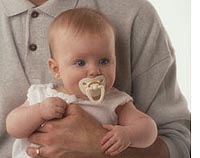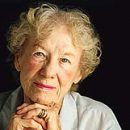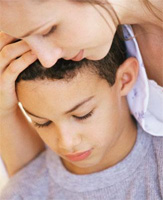Children's amnesia is a completely natural process. Everyone knows that the child begins to remember itself, events and surrounding only from 2.5-3 years. Why is that?
Content
One of the most amazing features of human memory is that there is a type of amnesia, which everything suffers: almost no one can remember what happened to him in the first year of his life, although this is the most richly experienced. For the first time, Freud drew attention to this curious phenomenon, which called him amnesia childhood. He opened this phenomenon, observing his patients, in general, are not able to recall the events of the first 3-5 years of their lives.
At first, you might think that there is nothing unusual in this, because the memory of events is erased with time, and a lot of time passed between early childhood and adult life. But amnesia of childhood can not be reduced to ordinary forgetting.
Most of the 30-year-old people can remember much about their years in high school, but very rarely, which of the 18-year-olds can tell something about their lives at a three-year-old, although the time interval and there and there are about the same (about 15 years).
Experiments on memory
 In some studies, people asked to reproduce and date the memories of their childhood. The earliest memories of most were associated with the events that happened when they were three years or more; Very few, however, were able to state the memories preceding age in one year. But with their reports there is one problem: you can never be sure that «Pot up» The event really happened (perhaps a person reconstructed what, in his opinion, was happening).
In some studies, people asked to reproduce and date the memories of their childhood. The earliest memories of most were associated with the events that happened when they were three years or more; Very few, however, were able to state the memories preceding age in one year. But with their reports there is one problem: you can never be sure that «Pot up» The event really happened (perhaps a person reconstructed what, in his opinion, was happening).
This problem was overcome in the experiment, where the subjects were asked a total of 20 issues about the event from their childhood, which was exactly known what it happened - the birth of a younger brother or sister; Details of such an event can be checked by another person. Questions asked to each subject concerned the events that took place when the mother left for the hospital (for example, at what time of day she left when she was in the hospital and when a mother with a baby returned home).
The subjects were students, and their age at the time of his brother or sister varied from one year to 17 years. The results of this study showed that if the brother or sister was born before reaching a three-year-old age, he could not remember this. If the birth accounted for more than three years, the number of memories increased with age at the time of this event. These results indicate the almost complete amnesia of the first three years of life.
What's happening
Why amnesia of childhood arises? Freud believed that this was due to the suppression of sexual and aggressive sensations experienced by a small child in relation to their parents. But such an explanation predicts amnesia only on events related to sexual and aggressive thoughts, whereas in fact the amnesia of childhood applies to all events.
A more appropriate explanation is that the amnesia of childhood is a consequence of a colossal difference between the experience of encoding information in small children and the organization of memories in adults.
In adult memories are built in categories and schemes (for example, it is such a person, this is such a situation), and small children encode their experiences, which do not summarize them and without communicating with adjacent events. After the child begins to absorb links between events and share events by category, early experiences are lost.
How memory matures
Why is the transition from infant to an adult memory form? One of the reasons - biological development. Hippocampus - the structure of the brain participating in the union and formation of memories - matures around one year or two after birth. Therefore, events occurring in the first two years of life cannot be systematized enough, and. Therefore, they cannot be reproduced.
Other reasons for the transition to adult memory is better explained at the psychological level. These include the development stages, in particular, the development of speech and the beginning of training in school. And speech, and type of thinking, educated by school, create new ways to organize experiences that may be incompatible with the method of encoding the experience of small children.
What is curious, the development of speech reaches the first peak at the age of three, school training begins from five years and apparently, precisely in the period between three and five years, the amnesia of childhood ends.









